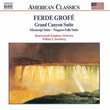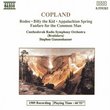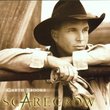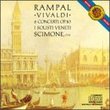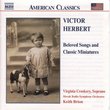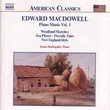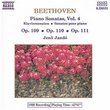| All Artists: Georg Philipp Telemann, Simon Standage, Collegium Musicum 90, Jane Coe, Rachel Brown, Anthony Robson, Cherry Forbes, Richard Earle, Catherine Weiss, Micaela Comberti Title: Telemann: Triple Concertos: in Bb for 3 Oboes & 3 Violins; in A for Flute, Violin & Cello; in F for 3 Violins; in E for Flute, Oboe d'Amoure & Viola d'Amoure Members Wishing: 0 Total Copies: 0 Label: Chandos Release Date: 7/18/1995 Genre: Classical Styles: Chamber Music, Forms & Genres, Concertos, Historical Periods, Baroque (c.1600-1750), Symphonies Number of Discs: 1 SwapaCD Credits: 1 UPC: 095115058022 |
Search - Georg Philipp Telemann, Simon Standage, Collegium Musicum 90 :: Telemann: Triple Concertos: in Bb for 3 Oboes & 3 Violins; in A for Flute, Violin & Cello; in F for 3 Violins; in E for Flute, Oboe d'Amoure & Viola d'Amoure
CD DetailsSimilarly Requested CDs
|
CD ReviewsRecommended Performance of Telemann Concertos K. Scott Proctor | Wilmington, DE USA | 01/08/2009 (4 out of 5 stars) "This recording, performed by Collegium Musicum 90, represents an good performance of Telemann's work. I find Telemann to be one of the more under appreciated composers from the Baroque Period, and this recording offers a clear rendition of some impressive and moving music. The performance, while feeling a bit paced, is clear and of the sound quality is good." Sparkling Invention and Performance David J. Friedlander | Columbus, Ohio United States | 08/08/2010 (5 out of 5 stars) "I enjoy Telemann's music and when it is played well, one can gain some understanding about why he was so widely known and why his reputation exceeded even J.S. Bach during their lifetimes. The elements of Telemann's music that make it successful are evident enough - continuous invention, ingenious mixing of instrumental sonorities, brilliant sense of timing, advantagious use of folk elements - just to name a few. He had no fear of chromaticism, but when compared with Bach, his genial music often is considered lightweight. I admit that some of the time, his music can seem more like a diversion than a serious artistic statement. There is a danger however in characterizing him this way. If you delve into his music without preconception, I think it is possible to find much beauty and yes, even profundity. To capture this, listen to how masterfully he can extend a phrase. Also to be considered is the forward pointing aspects, even foreshadowing Classicism. Notice how naturally singing his melodies are. Often one can find hints of pathos blended in as well, setting the stage for Mozart and Schubert. His handling of themes is deft and one can learn a great deal from his wonderful mixing of different instrumental combinations throughout his works.
Specifically on this disc, contrasts of mood are striking in the Concerto in F major. This piece reminds me of the style and weight of a Bach Brandenburg Concerto. The opening is delightful, bubbling with energy while maintaining a congenial flow. The slow movement is a deep contrast and an excellent example of the pathos previously mentioned. I really enjoy the last work, the E major Concerto. It is memorable and illustrates Telemann's wonderful sense of blending and proportion. The opening movement, marked Andante unfolds slowly with an air of mystery. Here Telemann uses chromaticism and a measured, deliberate voice movement and the result has gravitas not normally ascribed to this composer. The following Allegro has power generated by a broad melody that is moved around deftly through related keys. A viola d'amore alternates with flute and oboe and all instruments engage in a back and forth call and response that has charm while never losing forward direction. Instrumental blending is really impressive here. He doesn't overwork his ideas and never drives them beyond their usefullness. I can't recall Telemann ever dragging on too long in a movement and there are only a few great composers that consistantly did this too. The next movement, a siciliano returns to the general feel of the earlier Andante but here the character is a bit lighter. Just when you think the music will begin to become routine, Telemann lays out a surprise harmonic change seemingly borrowed from far into the future that puts a sharper edge on the music. The Vivace Finale mirrors the 2nd movement Allegro in style and spirit. All together it adds up to a highly enjoyable work of considerable weight and value. It should be better known. The playing on this recording is an absolute joy. It is cleanly articulated and all the players are beautifully synchronized with each other. To toss out the cliche' "it couldn't be bettered" really doesn't tell you anything and in all probability is untrue. Who knows how far performance can be improved? In any case, the playing is very alive and spirited. This is balanced with playing technique that is highly assured. I don't get a sense of self-consciousness, disconnect or showyness. This is real chamber playing with natural give and take. It is frankly, delightful and I have played this disc as much as any other in my collection. I keep going back to it because it always gives pleasure from start to end. I recommend this highly to any classical music fan. Strict modernists may find this out of their frame of reference, but other than that I don't think you need to be enamoured with the Baroque or Classical periods of music to enjoy this music. It should have wide appeal from what I can tell, this is just a superior recording of great music. " |

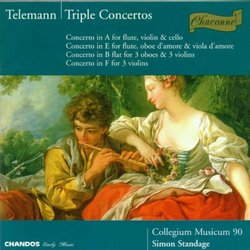
 Track Listings (14) - Disc #1
Track Listings (14) - Disc #1